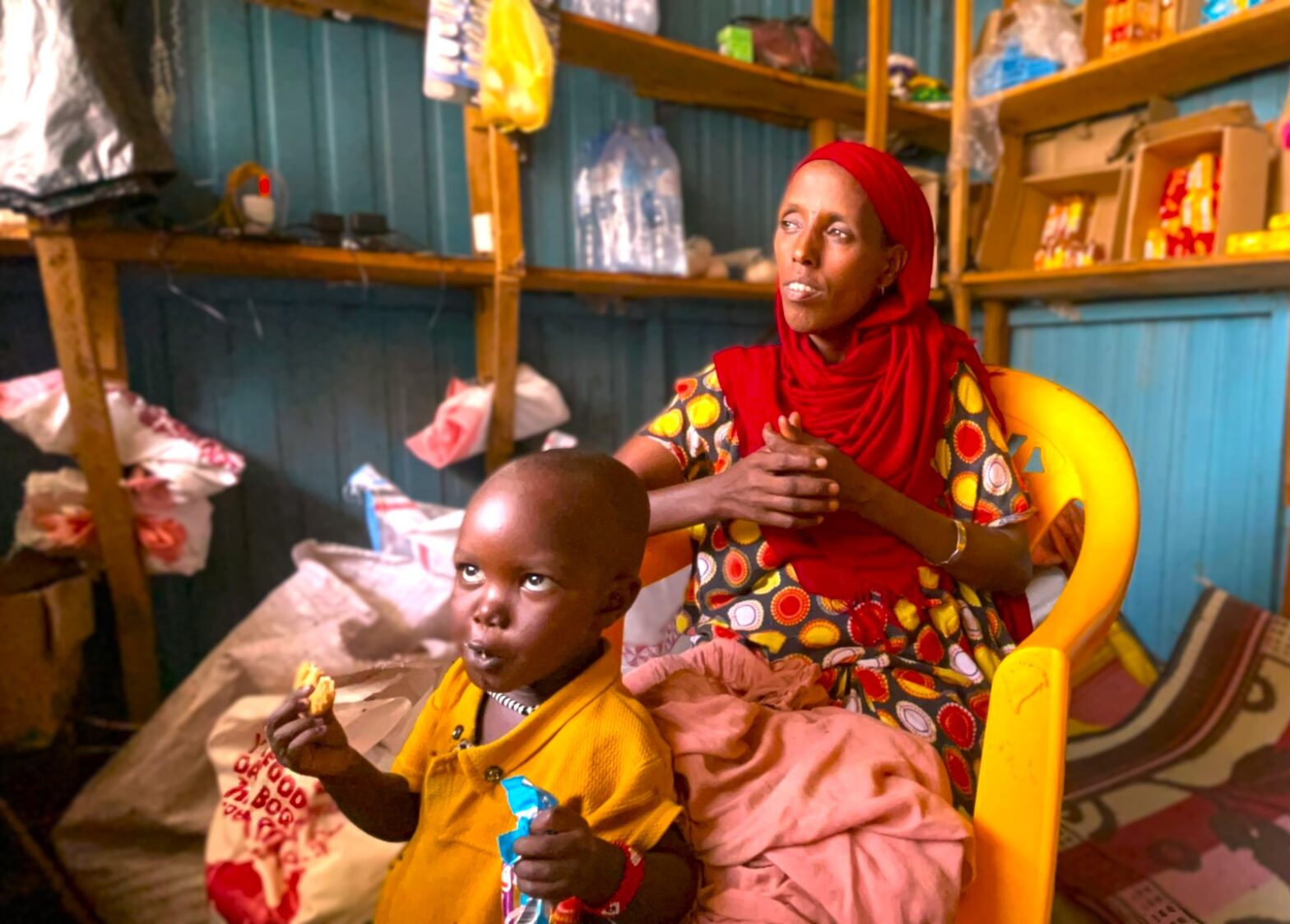
In the West Hararghe region of Ethiopia, life is far from easy. Home to both Oromo and Somali communities, the area is frequently shaken by ethnic tensions and conflict.
In 2020, a new wave of violence forced many people to flee their homes, adding to the growing number of internally displaced people. Misra was one of them.
Forced to leave everything behind, Misra fled to Meisso, a small town near the border with Somalia. Meisso is a relatively safe place, but is known for its harsh climate.
Life in Meisso was difficult for Misra, and finding a reliable source of income was nearly impossible. She turned to smuggling textiles from conflict zones back to local traders in Meisso – a dangerous trade that earned just about enough to feed her family.
“We earned very little, maybe 100 birr (less than £1) for each piece of fabric,” Misra explains. “But it was the only way we could survive.”
Smuggling can be very risky, particularly for women. By repeatedly travelling to dangerous areas, Misra was exposing herself to the risk of violence or being caught by security forces targeting smugglers.
Tough choices are an everyday reality
On one traumatic occasion, Misra was caught by a security guard and her entire load of textiles was seized. If she returned emptyhanded, she risked punishment from the traders she was supplying in Meisso. But if she resisted the guard, she could end up in jail, a place notorious for gender-based violence.
“I had no choice,” she recalls. “I begged the guard and ended up paying him twice what I had earned just to avoid being beaten or imprisoned.”
For many women in Misra’s position, tough choices like this are an everyday reality. Conflict and displacement leave them vulnerable to exploitation and violence, with few opportunities to escape the cycle of poverty. The peace and stability they long for can feel like a remote prospect.
With the help of Islamic Relief, Misra and other displaced women in her community have been able to start new lives. Through our Durable Solutions for Internally Displaced People and Communities project Misra and her peers were given the support they needed to start small grocery businesses. She set up a shop, which now provides a sustainable income, allowing Misra to feed her family and build a better future.
“For the first time, I don’t have to risk my life to make money,” Misra says. “Our business is small, but it’s enough to keep us going.”
Islamic Relief’s projects in the region focus on empowering vulnerable women like Misra, helping them earn a stable income and regain their independence. This kind of support is a real lifeline in communities where women are often left to shoulder the burdens of conflict and displacement alone.
Turning words into actions
Misra’s journey from refugee to business owner reflects the resilience demonstrated by so many women around the world, especially in conflict zones. Her story is a powerful reminder of the strength and determination of women who fight against the odds to create better lives for themselves and their families.
Islamic Relief supports the global 16 Days of Activism against Gender-Based Violence campaign spearheaded by the United Nations each year. We believe it is crucial to highlight the struggles of women like Misra, ensuring that they are supported and celebrated rather than overlooked.
This year’s campaign theme, Broken Promises, reflects the importance of turning words into actions, ensuring that promises of support for vulnerable women are actually kept. Misra’s story shows the value of fighting for justice and equality for all women, everywhere.
If you want to make a lasting impact, donate today to help women like Misra break the cycle of violence and poverty that so many endure.



